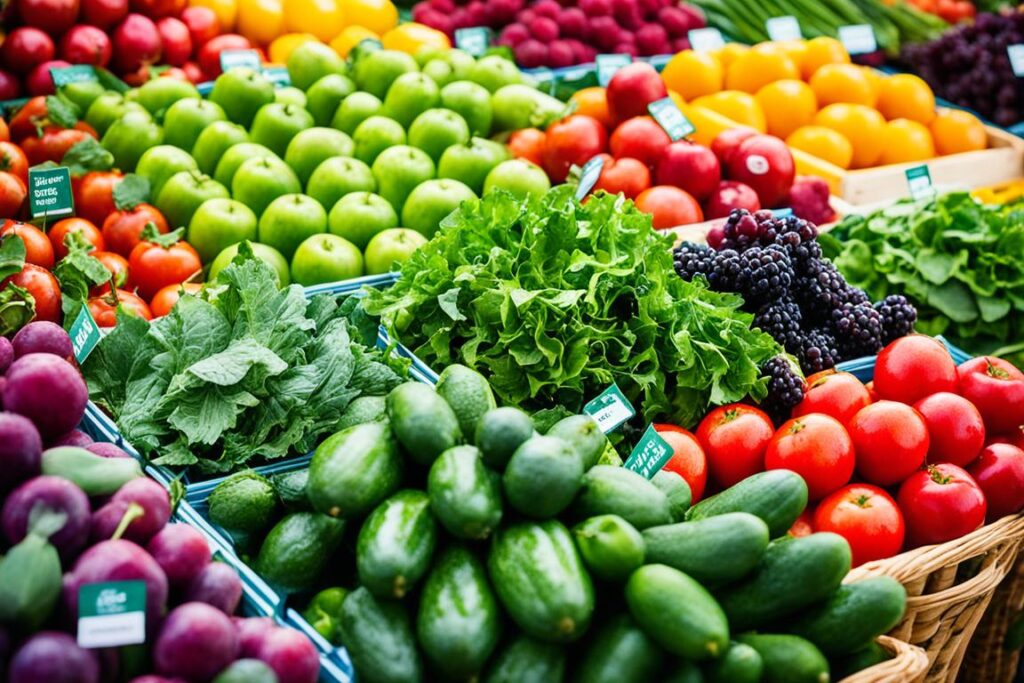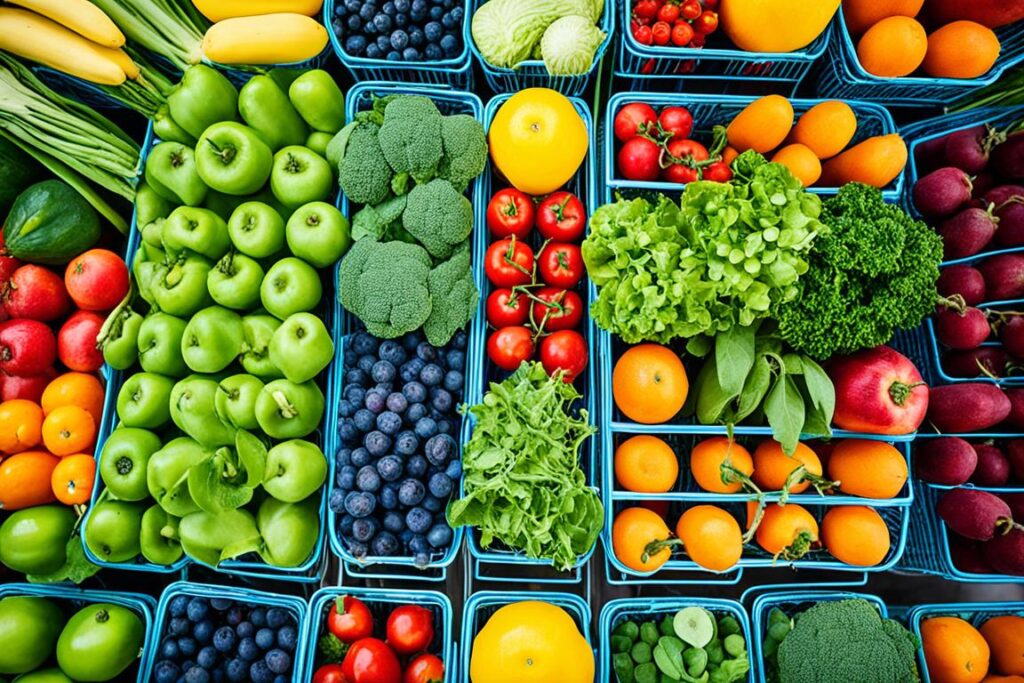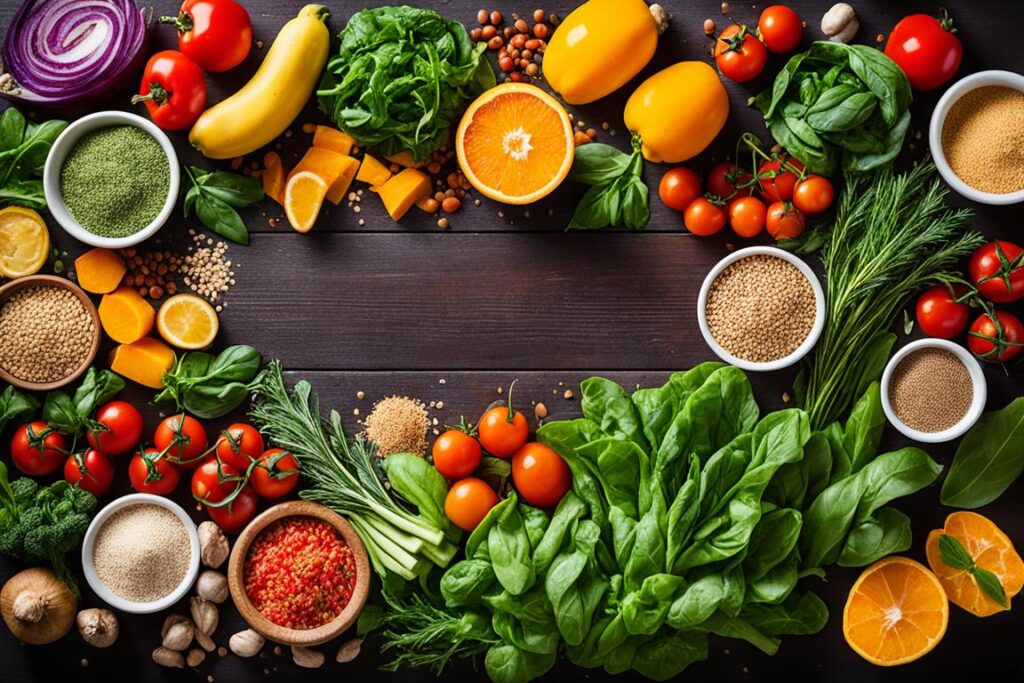Welcome to our shopper’s guide on finding the freshest produce! We all want to eat fresh fruits and veggies for a healthy diet. But, it can be hard to know what’s the best when there are so many options. This guide is here to offer you tips and info for smart produce shopping.
Key Takeaways:
- Find out which fruits and vegetables are most contaminated by pesticides with the Dirty Dozen list.
- See the Clean Fifteen list to know which produce has the least pesticide residue.
- Get our advice on picking the freshest fruits and vegetables, like checking their colors and looking for damage on packaged items.
- Learn about the health risks of pesticides and think about choosing organic or produce with fewer pesticides.
- Remember, the best times to buy produce are not on Sundays and early Monday mornings.
Tips for Selecting the Freshest Produce
When picking out fresh produce, keep a few tips in mind. This advice works for both veggies and fruits. It ensures you get top-notch food at the market.
“Always look for vibrant and rich colors when selecting berries.”
Size doesn’t always show freshness. Look at the color instead, especially with fruits. Blueberries should be a deep, rich blue and strawberries a bright red. These colors mean they are ripe and taste great.
Give berry cartons a light shake to check for loose fruit or signs of moisture. If they’re dry and solid, they’re likely high quality.
Inspect bagged produce by looking inside and under the bag. Avoid items with damage or that look wilted. Freshness means better taste and more nutrients, so pick carefully.
Where the produce comes from is also important. Local fruits and veggies are often fresher and in better condition. Plus, buying local helps support farmers.
Try to shop for groceries when the produce is fresh. Warm days such as Sunday and early Monday aren’t the best times. Later in the week, fresh deliveries are more likely. This means you can find the best quality food then.

The Benefits of Selecting the Freshest Produce
Picking the freshest produce makes your meals taste better and healthier. Fresh fruits and vegetables are full of vitamins and minerals. These are good for you and make your dishes delicious.
Get Fresh Fruits from FruitGuys, Fresh Produces, GoFresh
Remember these tips at the grocery store. Choose items that look vivid and undamaged. This way, you can enjoy the best ingredients in your cooking.
The Impact of Pesticides on Produce and Children’s Health
Pesticide residues on fruits and veggies can be risky for kids. The Environmental Working Group found in its Shopper’s Guide that most non-organic items have these residues. They added that the dirty dozen group of foods had the most pesticides.
The dirty dozen includes foods heavily contaminated by pesticides. It has strawberries, spinach, and kale, among others. These foods often contain fungicides like fludioxonil and pyrimethanil, which can disrupt hormones and harm reproduction.
High pesticide levels can reduce the health perks of these foods. So, knowing the risks is key, especially for parents. It makes looking for safer options a smart move.
Choosing organic produce is one way to dodge pesticides. Organically grown fruits and vegetables don’t use synthetic pesticides. Another strategy is the Clean Fifteen list. It shows the least contaminated produce. Picking from this list means healthier options that don’t sacrifice quality or flavor.



